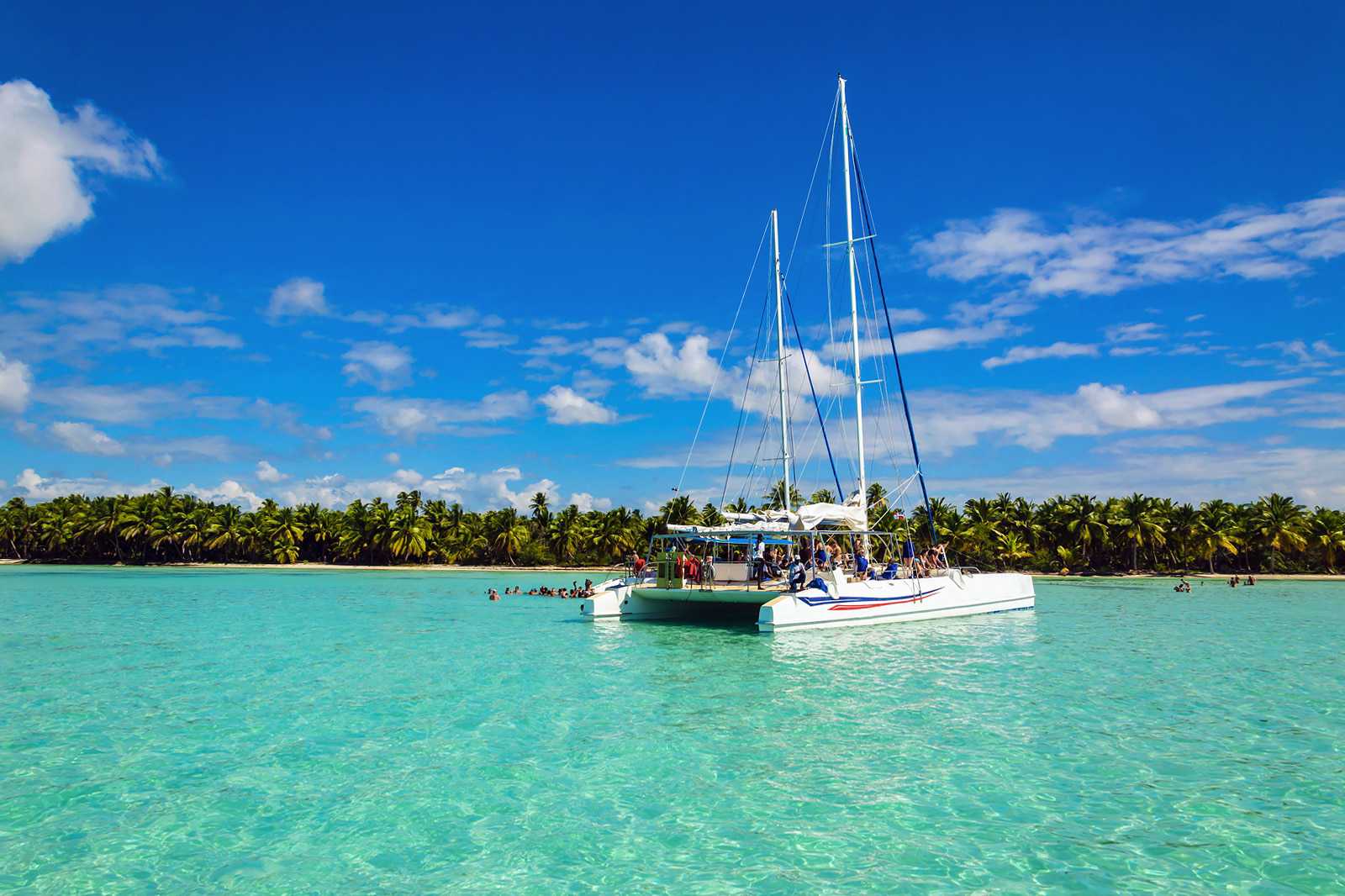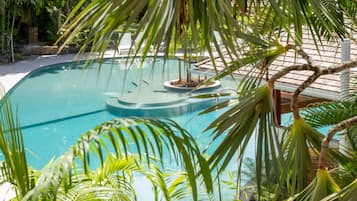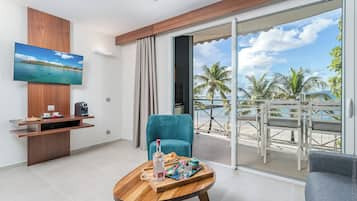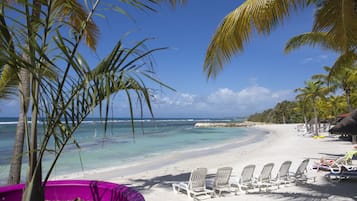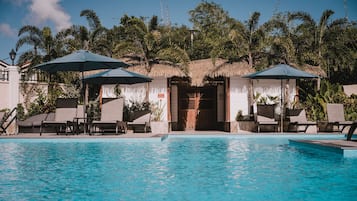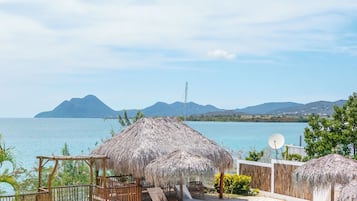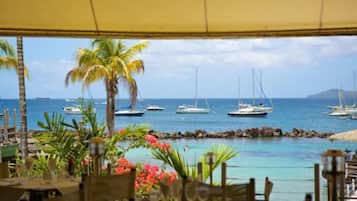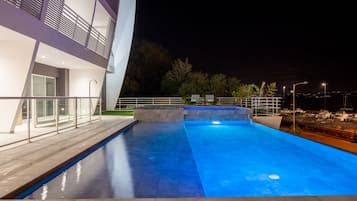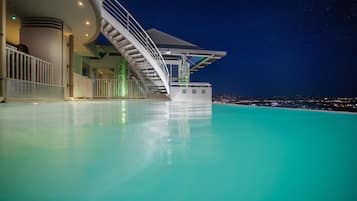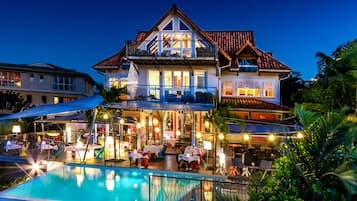Many of the best things to do in Martinique relate to the French Caribbean island’s magnificent natural beauty or its colourful history. Its great collection of beaches are among its most popular allures, most of which offer serene seascapes and magnificent backdrops.
Sugar plantations cover the slopes of Mount Pelée, Martinique’s active volcano as well as the island’s southern and eastern countryside. Some of these gorgeously landscaped grounds themselves have evolved into unmissable attractions. We’ve included these and more of the island’s top points of interest below.
What are the best things to do in Martinique?
- 1
Beaches in Martinique
Gorgeous coastal stretches in the south of the Caribbean
- Budget
- Families
- Photo
Read moreThe beaches of Martinique are among the main draws of this French Caribbean island. The Lesser Antilles’ year-round warm weather attracts beachgoers looking to relax on powdery white sand and explore beautiful coral reefs along the shores.
Some of Martinique’s best beaches include Plage des Salines and Plage de Point Marin on the southern coast, both of which are known for idyllic Caribbean, palm-fringed shorelines up to the water. Further up north is Anse Figuier in Le Marin, a snorkelling paradise with crystal-clear water along the rocks of Pointe Figuier. Grande Anse du Diamant also gets a frequent mention for its small beach town setting, with the scenic Rocher du Diamant (Diamond Rock) on the horizon.
- 2
Jardin de Balata
Martinique’s botanical garden

- Couples
- Families
- Photo
Jardin de Balata is one of the best things to do in Martinique, especially if you’re looking for a leafy break from the island’s gorgeous beaches. The privately-owned gardens started back in the early 1980s when French horticulturist Jean-Philippe Thoze returned to his childhood Creole house on the hillsides of Fort-de-France, where his passion for botany flourished.
Today, Jardin de Balata features over 300 types of palms alongside varieties of begonias, bamboos and bromeliads. You can stroll through the gardens’ canopy trail, set 15 metres high over giant bamboos and mahoganies. Even if it drizzles during your visit, there are ample huts to shelter along the paths. To refresh, there’s La Luciole, an onsite restaurant where you can enjoy a drink and try some local Creole flavours.
Location: Rte de Balata, Fort-de-France 97234, Martinique
Phone: +596 596 64 48 73
Map - 3
La Savane des Esclaves
A walk back in time at a Carib Indian village

- Families
- Group
- History
La Savane des Esclaves is a great place to learn about the local Amerindians’ way of life in Martinique centuries ago. The 3-hectare outdoor museum has a recreated Maroon village, with 25 rustic thatched huts spread over a lushly landscaped hillside in the town of Les Trois-Îlets.
Besides various art pieces and murals depicting the history of local slavery, you can see various medicinal herbs grown in a Creole garden. You can also taste freshly brewed herbal teas and see a live cassava flour cooking demo. Guided tours are mostly in French, but text handouts are available in English, German, and Spanish.
Location: La Ferme, Les Trois-Îlets 97229, Martinique
Phone: +596 596 68 33 91
Map - 4
Zoo Martinique
Colourful wildlife within a 4-hectare park

- Families
- Group
- Photo
Zoo Martinique offers a fun family outing in Martinique. You can admire a variety of animal and bird species from around the globe. The zoological park was established in the Habitation Latouche sugar plantation in the town of Carbet – the island’s oldest plantation and refinery. The plantation was devastated by the eruption of Mount Pelée in the early 1900s and you can still see some of the ruins on your visit.
Among the most exotic animals that you can see at Zoo Martinique, besides the parrots, monkeys, and anteaters, are black jaguars, red-footed tortoises, and the elusive red-handed tamarin. The magnificent botanical garden was designed by the founder of the Balata Gardens.
Location: Anse Latouche, Le Carbet 97221, Martinique
Open: Daily from 9 am to 6 pm
Phone: +596 596 52 76 08
Map - 5
Gorges de la Falaise
A rainforest hike to Martinique’s wondrous waterfall

- Adventure
- Budget
- Families
- Photo
Gorges de la Falaise is a narrow gorge and waterfall near the hillside community of L'Ajoupa. Here, you can enjoy one of the most immersive nature adventures in Martinique. A delight for those into canyoning, the river trail leads you through the lushly rainforested slope northeast of Mount Pelée and through vast plantations that date back centuries.
The stream of namesake River Falaise finds its way through tall rock walls towards a series of natural rock slides and refreshing pools. The waterfall itself cascades from about 14 metres high. It’s a moderate hike that regularly attracts families sharing a taste for adventure.
Location: Chem. de Semaine, Ajoupa-Bouillon 97216, Martinique
Open: Daily from 8 am to 2 pm
Phone: +596 696 11 52 41
Map - 6
Banana Museum
A fun venue honouring one of the world's most versatile fruits

- Families
- Group
- Unusual
The Banana Museum (Musée de la banana) on the Caribbean island of Martinique is one of the very few museums of its kind honouring the yellow fruit. You can learn more about the herbaceous flowering plant and its varieties that are enjoyed by people all over the world. The museum’s onsite plantation has more than 65 types of banana trees growing in its collection.
The museum comprises a showroom where you’ll get an initial overview of the fruit. Then, if you want to get a closer view of the actual plants, you proceed to trails that lead you through the working plantation grounds. You might be surprised to find that bananas aren’t only yellow – they come as bright-red ones and even burgundy!
Location: Quartier, Fourniols, Sainte-Marie 97230, Martinique
Open: Tuesday–Friday from 9 am to 1 pm (closed Saturday–Mondays)
Phone: +596 596 76 27 09
Map - 7
Habitation Clément
Martinique’s historic rum distillery

- Couples
- Food
- Group
- History
Clement House (Habitation Clément) is a heritage site and a last-standing rum distillery in Martinique. Named after the family who settled on the island back in 1887, the interpretation centre sits on a vast agricultural area on the southeastern edge of Martinique. To this day, it still produces rum using old-school techniques.
Clement House is very well-preserved, while its surroundings are well maintained with an outdoor gallery of art and sculptures that you can admire after touring the distillery. You can enjoy a self-guided tour of the building as information is provided in English and other languages. Don’t forget to visit the tasting room for a drink and chat with the friendly and knowledgeable bartenders.
Location: Domaine de l'Acajou, Le François 97240, Martinique
Open: Daily from 9 am to 5 pm
Phone: +596 596 54 62 07
Map - 8
St Louis Cathedral
A landmark cathedral with a large pipe organ

- Budget
- History
- Photo
The St Louis Cathedral (Cathédrale St-Louis) is a historic Gothic Revival landmark in Downtown Fort-de-France. The cathedral dates back to 1895. The iron building with its gorgeous façade and 57-metre-tall steeple towers above Rue Victor Schœlcher and Rue Blénac. Those arriving by cruise ship hardly miss it when disembarking at the terminal on Rue Loulou Boislaville.
The well-preserved church is a vivid contrast against its more modern surroundings. It’s worth a look inside with its ornate walls, balustrade, stained-glass windows, and a big pipe organ. Visiting the St Louis Cathedral during a mass only adds to the atmospheric experience.
Location: Rue Victor Schoelcher, Fort-de-France 97200, Martinique
Phone: +596 596 60 59 00
Map - 9
Mémorial Cap 110
A solemn clifftop sculpture in Le Diamant

- Budget
- Photo
Mémorial Cap 110 is a modern and permanent art installation on the east-facing clifftop of Le Diamant. It features a series of giant humanoid stone sculptures, forming a triangle that points towards the sea. Created by artist Laurent Valere, it serves as a memorial honouring the victims of the island’s slave history.
Despite Mémorial Cap 110’s solemn (if not haunting) aspect, the sculptures complement the beautiful scenery very well. Even though it’s east-facing, the hues of the sky at both sunrise and sunset is breathtaking. You can reach the sculpture garden after a short walk from the car park.
Location: Le Diamant, Martinique
Map - 10
Mount Pelée
The so-called ‘Little Pompeii’ of the Caribbean

- Adventure
- Budget
- Photo
Mount Pelée (Le Mont Pelé) is an active volcano and major natural landmark of the French Caribbean island of Martinique. The volcano, which lies in the north of the island, last saw its major event with ash and lava back in 1902, devastating sugar plantations and the whole town of Saint-Pierre on its southern slopes.
Mount Pelée remains active over a century after its climactic event. Even so, adventurous climbers hike it via a forested and beaten dirt track south of Le Pêcheur village. It’s also home to the endemic Martinique volcano frog and various exotic bird species, including Lesser Antillean swifts, Martinique orioles, Antillean crested hummingbirds, and flycatchers.
Map
